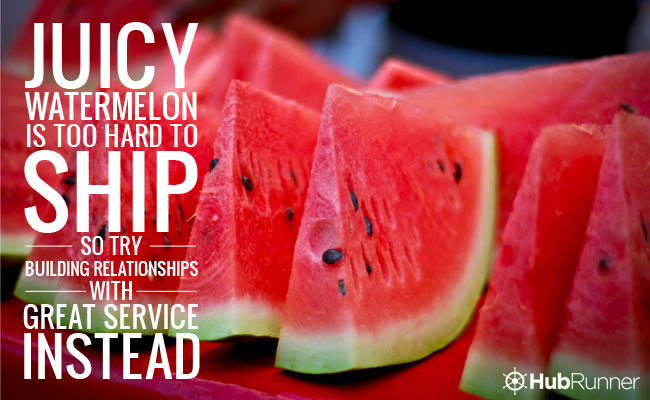Relationship marketing: What it means and why it matters
Relationship marketing is defined by a focus on long-term customer satisfaction and retention rather than driving as many sales as possible in the short term.
At HubRunner, we really focus on delivering a product and experience that makes our customers happy they found us. We believe if our customers are happy they found us, and if they remain happy that they’re a HubRunner customer, it’s inevitable that they’ll tell their friends and colleagues to get in touch with us.
If you’re interested in considering what a relationship marketing strategy might look like for your own company, here’s a simple framework you can use to brainstorm:
1. Trust
First, develop a process to systematically build trust. To do so, answer these questions and then make a list or diagram of your trust-building process:
- What steps are you taking to build a real sense of trust with people who are considering purchasing your product or service?
- What elements of your marketing or sales process are inhibiting the development of genuine trust between you and your potential customers?
2. Fulfillment
Second, develop a system to deliver your product or service in a timely, high-quality manner. There will always be unforeseen challenges, so make sure you also develop a communications process that lets you address these challenges without leaving your customer wondering whether or not they should still trust you. To develop your fulfillment and communications processes, answer these questions:
- When I deliver my product/service, how can I ensure I meet my customers’ expectations in terms of cost and timeline?
- If I am unable to meet those expectations, how can I communicate with my customers in a manner that preserves their trust?
- What sort of guidelines or training do I need to create to ensure my team members or partners stick to these systems?
3. Re-engagement
Third, develop a system to re-engage with your customers on a regular basis by providing value. This will maintain your relationship but also deepen their trust. To develop this system, answer these questions:
- In what manner (phone, email, social media, etc.) will my customers be most receptive to periodic contact?
- What content can I deliver to them that provides value on an ongoing basis?
- What steps do I need to take to create and maintain this re-engagement system?
If you build these systems, you’ll have the foundation of a great relationship marketing program. Nothing is effective as word-of-mouth recommendations, and a solid relationship marketing program is a great way to systematically drive more recommendations.
Note: This post was originally published on Business Superstar.
Do you have any suggestions about ways to strengthen a relationship marketing program? Feel free to email us or add a comment to this post!



Comments are closed.